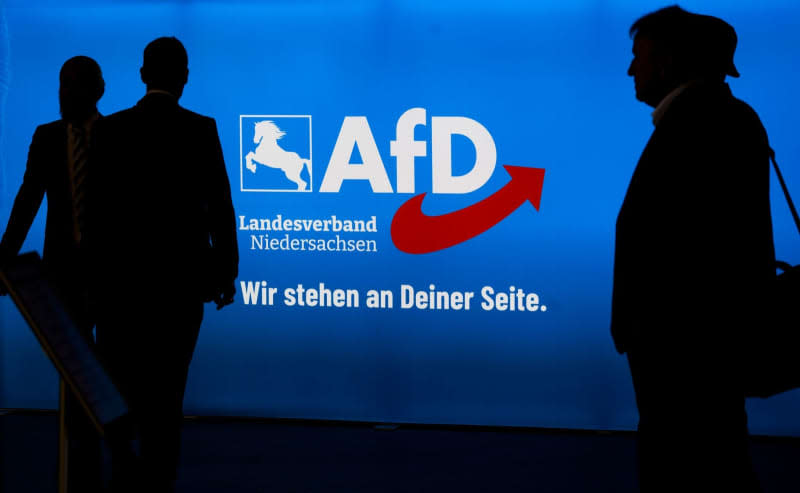German far-right party AfD sees membership grow as SPD suggests ban

Germany's far-right AfD party says its membership has risen sharply.
It currently stands at 40,131, around 37% higher than at the end of 2022, the AfD announced on Tuesday.
At the end of 2022 the party had 29,296 members. All other parties represented in the Bundestag had significantly more members at that time.
Opinion polls suggest up to 23% of Germans would vote for the AfD if federal elections were held on Sunday. This would make it the second strongest party - behind the Christian Democrat CDU/CSU - for the first time.
The Federal Office for the Protection of the Constitution categorizes the AfD as a suspected right-wing extremist party. The party's state associations in Saxony, Thuringia and Saxony-Anhalt have already been categorized as confirmed right-wing extremist.
Despite the AfD's strong polling, banning the party remains an option for the leader of Germany's left of centre SPD, Saskia Esken.
"Such a party ban is rightly subject to high hurdles. But I am convinced that we should keep reviewing it," Esken told dpa. "It is important that we talk about banning the AfD and that voters are shaken up."
Esken, who nominally leads Chancellor Olaf Scholz's party although he would have a final say, reckons the AfD is part of an extreme right-wing network, maintains lists of critical journalists and sets up reporting portals for teachers who criticize the party.
"It uses every topic to incite people. For me, that is clearly anti-democratic," Esken said.
The AfD recently made significant gains in state elections in western Germany and won mayoral and lord mayor elections in the east of the country.
Elections will be held in three eastern German states in September - Saxony, Thuringia and Brandenburg. The AfD is leading in the polls in all three states. It cannot be ruled out that it will win an absolute majority of parliamentary seats in at least one of the states and be able to appoint a state premier.

